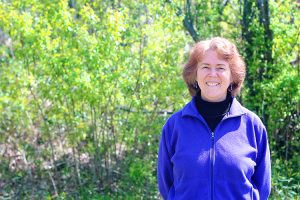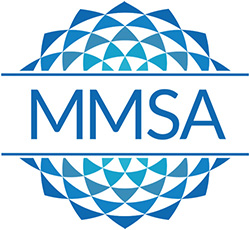“More Figuring Out”: 3-D Teaching of Science and Engineering (3D-TSE)
Some seventy-five percent of Maine school districts have adopted a set of science and engineering standards that are focused on three-dimensional (3-D) teaching and learning that integrates the three dimensions of disciplinary core ideas, crosscutting concepts, and science and engineering practices. These ‘Next Generation Science Standards’ are based on educational research and evidence described in the National Academy of Sciences Framework for K-12 Science Education. The standards themselves, termed NGSS, were written through a state-led process in which Maine actively participated.
Implementing these standards will require some conceptual and pedagogical shifts in teaching and learning. By focusing on the three dimensions rather than any single one, teachers need to be able to use practices to help students better grasp the bigger ideas of crosscutting concepts by building on core ideas. Students need to be given the opportunity to figure things out through guided instruction rather than learning about things through passive instruction. This reflects the view that science is a body of knowledge, but that body is extended through evidence, argumentation, modeling and theory building.
To achieve this vision, the Maine Mathematics and Science Alliance (MMSA) has partnered with two higher education institutions, Thomas College and Maine Maritime Academy along with the Next Generation Science Exemplar (NGSX) professional learning project and school districts in Maine to provide unique and exciting professional development. Fifty-two teachers from fourteen school districts across the state of Maine will participate in the institutes. Recent grants from the Maine Department of Education and Texas Instruments are making this possible.
There are three parts to this project:
- Institute A – NGSX
- Institute B – MMSA Engineering
- Discussion and Reflection Sessions
NGSX is a face-to-face professional development environment for teacher study groups, in which participants connect to a multi-faceted web platform that contains multiple pathways of learning. The NGSX web platform contains a uniquely configured set of problem-solving tasks aligned with NGSS, tools, resources, classroom video cases, and embedded expertise all designed to advance teachers’ engagement and knowledge building with 3-dimensional science teaching and learning. This unique blended learning environment focuses on explanation, argumentation, and modeling, key practices in the shifts involved in NGSS, set within the disciplinary ideas of matter and its interactions.
Participants develop disciplinary ideas by using the science practices as they participate as learners. Participants then engage in in-depth analysis of video cases from classrooms at the elementary, middle, and high school level to analyze students and teachers using science practices in their classroom, and the pedagogical approaches for supporting students. Importantly, study group participants focus on how classroom culture is key to supporting the practices, and developing the discourse strategies to scaffold the knowledge building elements of science practices. To date more than 2,000 K-12 teachers have participated in NGSX. Analyses of teacher growth reveal growth in subject matter knowledge and shifts in beliefs about teaching and learning that undergird the shifts in NGSS. Initial analyses also suggest growth in pedagogical context knowledge underlying argumentation, explanation, and modeling.
Dr. Kate Cook Whitt of Thomas College along with Vermont science educator Tim Brennan will facilitate the NGSX sessions. Dr. Cook Whitt is a national facilitator for the NGSX project while Tim Brennan is an NGSX facilitator for the state of Vermont.
Lynn Farrin and Lisa Marchi of MMSA with Dr. Paul Wlodkowski of the Maine Maritime Academy will engage the teachers by applying their deeper understanding of three-dimensional teaching through examples in engineering education. One of the features of the Next Generation Science Standards is significant attention to engineering both as a process and content area, but very much in an applied fashion. In fact, engineering design as a practice is topic that the NGSS states all citizens should learn. This typically involves defining and delimiting engineering problems, designing solutions to engineering problems, and optimizing design solutions.
During the 2017-18 school year, MMSA will reconvene teachers in a dine and discuss professional learning community format to discuss implementation issues, opportunities for deeper exploration, and group problem solving.
For more information about the project, please contact Joyce Tugel at jtugel@mmsa.org. For more information about NGSX, please see http://www.ngsx.org/.








